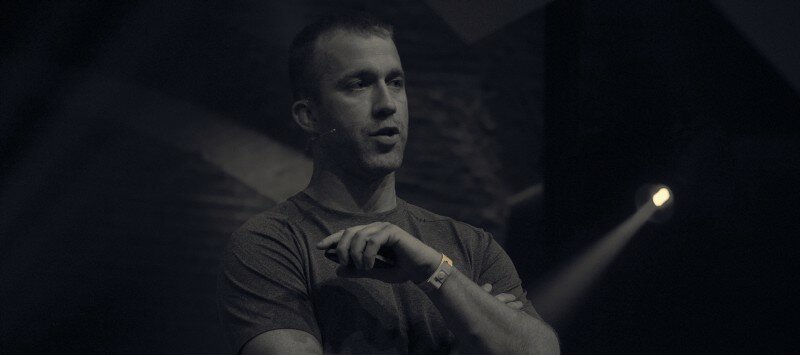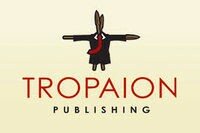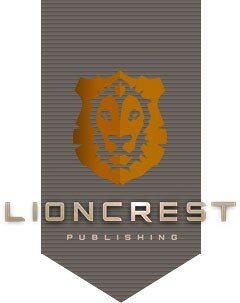“How empty is theory in the presence of fact!”
― Mark Twain
It’s so fucking easy to blame other people for your problems.
It’s what I did for a long, long time: blame everyone else for everything, and never take ownership of my decisions and actions and how they impacted my own life.
That’s not what I’m going to do anymore.
I’m going to start the Asshole To CEO series by cataloging my previous business endeavors, painfully detail everything that went wrong (and right), and own all the failures in my life. Learning starts with admitting what the facts are, and taking responsibility for your own actions.
[Note: I won’t write about my personal failures; I already wrote four books about those (see above). You can read them on your own time, they are pretty funny. At least the 3 million people who have bought those books think so.]
My notable business experience covers four companies; three I founded, and one I joined after an acquisition:
Company #1: Rudius Media
Started: 2006
Role: Founder, CEO
Sector: Entertainment
Product: Books, movies, websites and content
Best Gross Sales Year: Honestly not sure, but probably under 100k
Best Net Profit Year: Same
Number of employees: 5
Result: Failure, company shut down in 2009
What Did I Learn?: This was my first attempt at a company, and it was a fucking mess, almost exclusively because of me and my mistakes. I pretty much did everything wrong that’s possible to do wrong with a startup, other than criminal shit like stealing company money to buy hookers and coke or something like that.
Mostly, I learned how little I knew about business, management, money, and how the real world works. Here is a SHORT list of some of the things I know I did wrong:
- I didn’t understand the economics of media & publishing
- I picked a business model that had virtually no chance of succeeding
- I didn’t focus at all on actually making money
- I spent money much faster that I was making it
- I put too much of my own money into projects that made no financial sense, because they filled some emotional need in me
- I spent too much time in big picture thinking (and most of that was me fantasizing about my future success)
- I spent too little time in actual business details
- I picked the wrong people to work with; either toxic people who had their own emotional issues and were terrible to work with, or people who put up with my bullshit so much that they were essentially ineffective as employees
- I was too enamored with my own ideas, and not willing to listen to people or learn from them, even when they had much more experience, or pointed out something I was clearly doing wrong
- I had too much emotionally invested in my specific vision and a specific outcome, and it prevented me from making the changes and decisions I had to in order for this company to work
That’s just the business part. My management skills were a total mess too. I hired the wrong people, but I definitely made those people worse employees by being a terrible boss. Some more things I did wrong:
- I expected my employees to do things I wasn’t willing to do (note: this is one of the two hallmarks of bad leadership)
- And perhaps worst of all: I put myself and my selfish interests in front of the company AND its employees. (note: this is the other hallmark of bad leadership)
- I didn’t set the proper goals and outcomes for them; they had no clear understanding of what result I expected (mainly because I had no fucking idea)
- I didn’t give them enough guidance on what I asked them to do, and then get pissed when they didn’t do what I wanted, and start micromanaging them
- I yelled when shit didn’t go my way. I had a serious anger problem
- Pretty much every decision I made was an emotional decision and was about either my ego or me in some way. There was zero understanding of the fact that my employees or customers existed in any way or mattered at all
This list could probably be way longer, but you get the point. This company had no fucking shot, mainly because of my flaws, as an entrepreneur, a businessman and a manager of people, and perhaps most importantly, my emotional problems. I wasn’t ready to run something–I was barely ready to take care of myself–and it showed.
Tucker giving a talk at TNW Conference via Wikimedia Commons

It’s hard for me to go back and think about that company, not because it failed, but because I was such a fucking dipshit in how I ran it and the way I thought. It’s embarrassing to think about now, to be honest.
If the guy I was then pitched me I am now, I would either laugh him out of my office, or quite possibly fight him. I’ve seen 1000’s of stupid companies, but the worst companies are not the worst ideas; they’re the ones with the insanely arrogant founders who know nothing, think they know everything, and refuse to listen to anyone or address their issues. That was me.
The one good thing is that we did get some things done, even in spite of my bullshit. We developed a fledgling content network, that, with a smarter and more savvy leader (not me), could have worked.
And we did make a real Hollywood movie out of this company that went to theaters. It did poorly at the box office, but has done great in DVD and in the secondary markets.
The problem wasn’t the creative effort or ability of me or my team; the problem was me, and that was hard for me to face for many years.
Company #2: Tropaion Publishing
Started: 2011
Role: Founder, CEO
Sector: Publishing
Product: Books
Best Gross Sales Year: 2012, $2mm
Best Net Profit Year: 2012, $1.4mm
Number of employees: 1
Result: Sold to Lioncrest Publishing in 2012
What Did I Learn?: It took me a two long years to face the music from my first company and learn from my mistakes, but I eventually did it, and by doing that I was able to correct them.
I learned so much, it’s hard to write it all down; you could almost reverse the list above, and that could be the list of what I learned. This company was extremely successful by any measure. In our first year we were not only profitable, we made over a million dollars, and we did it with effectively two full time employees (me and my assistant).
I think the key thing that I finally started to understand was not just business, but how the world actually worked, and I started to get a grip on myself. I stopped getting pissed and railing at people or systems that I thought were unfair, and instead focused on doing the job at hand.
I think the big shift for me emotionally was asking myself the question,
“Do you want to be angry at the injustice of the system and fail because of that, or do you want to go around their bullshit, be effective at what matters, and succeed?”
To be clear: it wasn’t that I had to compromise my ethics or do things I thought were wrong. It was more about realizing that bitching about how unfair and bankrupt the entertainment and publishing businesses were wasn’t getting me anywhere but pissed off. So my options were to either get in the ring and do something about it, or stand on the sidelines and whine like a bitch. I got in the ring (I didn’t fully shut up though).
This is abstract, but you can read about precisely what Tropaion did in this piece. It was pretty genius, and the only way I could have pulled this off would be if I stopped trying to fight an unfair system, and instead worked to outsmart it. That’s partly being smart and experienced enough, but it’s mainly about being able to emotionally let go of anger or a defined course, and instead being willing to see other ways.
But I was not totally in the clear with my emotional issues. I just found a way to set them aside, and focus on starting an actual business that works.
Company #3: Lioncrest Publishing
Started: 2012
Role: Partner
Sector: Publishing
Product: Books, conferences, editing services, instructional materials and courses
Best Gross Sales Year: 2012, $5mm (?, I think, it maybe more)
Best Net Profit Year: 2012, (not sure of the amount actually, but it had solid margins)
Number of employees: 6
Result: Dissolution and reverse acquisition in 2013 (it’s complicated)
What Did I Learn?: I realized that Tropaion Publishing had the potential to be very successful, but it was going to take a lot of grunt work that I didn’t want to do (or honestly even know how to do). I didn’t want to do the things needed to take the company from 2m to 20m and then exit–but I still wanted a big exit.
Looking back and being totally honest, what I wanted was money and power without work. I did not want to admit this to myself then, but it’s the truth.
I found a company I thought could do that work: Idea Incubator. It’s owned by Ryan Deiss and Perry Belcher, and they loved my business model and what I’d done, and they had the desire and resources to take my start, add it to another similar business that they had started, and scale it up quickly to an eight figure business (they then planned to exit it to a private equity firm for a healthy 4–6x earnings multiple).
So they acquired Tropaion, and I agreed to stay on with Lioncrest Publishing as a partner and help them scale the business, and I’d get a nice piece of the eventual exit. I had fantasies of a big pay day dancing around my head.
Here is where my emotional issues came back to bite me again. Part of it was wanting success without work–which got me in the deal–and the other part was looking at things emotionally and not rationally.
Ryan and Perry are what is called “information marketers.” They sell content, and they do it with things like long form sales letters and other direct sales tactics. This is perfectly fine, but most of the people in that space are shady and scammy; they are the infomercial people of the internet. I didn’t think they put enough focus on having a great product, but instead only cared about how to sell the product. This the complete opposite of how I like to do business.
I saw this early, didn’t like, and still ignored it. Why?
If I was going to blame them, I’d say they lied to me. But that’s bullshit. I don’t think they ever told me a lie. They just told me what I wanted to hear, and I ignored everything else.
When you combine that with the fact that I wanted to make some quick money, I joined forces with two people who see the world totally differently than I did. That does not work. I let my emotional, unconscious needs again push me in the wrong direction, because I wasn’t honest with myself, and didn’t know myself well enough yet.
We decided to part ways in mid 2013. As part of the deal, I actually got the Lioncrest Publishing name, and they took most of the assets and re-branded them under a different company. It was very amicable, and there are no hard feelings.
I still like Ryan and Perry as people a lot, but we have diametrically opposite views on business. Perry likes to say that I hate profit. I like to say that they only care about money. Either way, it was a bad idea to work together, and I should have seen that earlier.
Also, I was a terror to deal with. My anger problem may have gotten worse then before, I think because deep down I knew I was lying to myself. I didn’t like the way they were running the business, but I stayed in it for the exact reason I criticized them: only caring about money. I was a hypocrite, and instead of recognizing that, I turned my anger outwards at them.
I will say this one good thing about myself: I finally started shutting up and learning from the smart people around. Say what you want about their ethics, but Ryan and Perry are smart, and because I asked questions, and listened, I learned a lot from them.
Two specific things I learned:
- They showed me how valuable all my marketing and media skills were to business. I knew my skills were valuable in the entertainment business, but I had no idea how truly bad almost all businesses are in every aspect of outward facing creativity, marketing, etc, and how much I already knew about “normal” business, without even really realizing it. It was crazy how well all the skills I developed while writing books and at TuckerMax.com translated to “normal” business marketing and sales. Basically, they showed me very clearly how valuable storytelling was to business.
- They also really drilled some basic business skills into me that I was lacking. Perry has a point about me and money–I don’t hate profit, I just never think about it. That is VERY BAD if you are running a business. They showed me how to think about converting a product into sales, and how to monetize an audience you have earned. They are really good at that–at turning content into a sellable asset–and I learned a ton watching and listening to them.
Company #4: Story Ark
Started: 2013
Role: Co-Founder & Partner
Sector: Marketing & Digital Media
Product: Marketing and Business Consulting; Information Publishing
Best Gross Sales Year: $1mm+
Result: Dissolved in 2014
What I Learned: This company was never really a full company. It was experiment that me, Ryan Holiday and Nils Parker tried. We basically tried to combine three different businesses (book publishing, marketing consultancy, and editing service) into one agency, with what we thought was a new business model.
It wasn’t, and it didn’t work.
Part of the problem was me and my issues, which still weren’t really fixed, or even addressed. I was still angry, I was still not fully understanding all my issues, and I was still driven by emotional decisions I wasn’t admitting to myself.
But I think the biggest problem was that Ryan, Nils and I wanted different things from the company, and from our lives, and this ultimately is what caused most of the friction.
I wanted to build a big awesome company that changed the world.
Ryan wanted easy passive income that got him in the press and allowed him to write books full time.
Nils wanted to make Hollywood movies.
These are not reconcilable goals. They’re all valid, they just don’t go together. Seems obvious, right?
Yeah, I know–we all should have talked this through and figured it out. We didn’t.
I also made a ton of mistakes dealing with the employees there, and with my co-founders. I still wasn’t ready to be a serious CEO, who has his shit together and makes the people around him better.
But even if I had been ready, I don’t think this would have worked. You can’t have three founders with three different goals–but if I had my shit together, then we’d have figured that out before the company ever started, and I didn’t.
The good news is that it made a lot of money–we were profitable when we shut down–and everyone in the company ended up better off when it dissolved. That is pretty rare and was cool to see.
Company #5: Book In A Box
Started: August, 2014
Role: Co-founder & CEO (along with Zach Obront)
Sector: Books & Publishing
Product: Book writing and publishing as a service
Best Gross Sales Year: $2.5mm+ (current year, 2015)
Result: Ongoing
What I’m Learning: I don’t want to declare this a success yet. But I can say that it has had a very successful start, and that Zach and I are pretty good at the entrepreneurial part of starting a business (which is different than the growth and running part of a business).
So far, we’ve done over 2.5mm in sales in the first full year, and not only are we growing fast, but our growth rate has been growing for over a year–which is the gold standard for a start-up. It’s easily the best business I’ve been involved in.
What changed? Almost everything. A short list:
- I have better people around me. My co-founder Zach Obront is great at a lot of things I am bad at, and we work really well together. And because I have (more of) my shit together (and so does Zach), we’re able to recruit an amazing team to join us on our mission.
- We had product/market fit from the start. First we created a service that met a real need people had and would pay money for, then started building a company around meeting that need. This is the smart way to do it, but not the way that makes you feel the best emotionally at the early stages (because it requires a lot of delayed gratification).
- We paid attention to our company culture and our emotions from day 1; and the driving ideas are our mission (helping people turn their ideas into books), and how our team relates to each other (we act like a tribe). Basically the opposite of how I used to do business (made everything about me).
- We also embedded in our culture a relentless drive to challenge every assumption and ask the hard questions, at all levels. Again, the opposite of how I used to be (because hard questions didn’t reinforce my fantasies about myself).
- But here’s the big lesson: I finally recognized and accepted where my personal problems are, which allows me to deal with them.
After four years of psychoanalysis, and an on-going meditation practice, and marrying an amazing woman who helped me, and being really honest with myself and taking extreme ownership of everything in my life, I now have a basic grasp on most of my emotional issues.
They aren’t solved at all, but they are known.
I repeat: I have NOT fixed them. Far from it.
I still have anger issues, I still don’t communicate enough then get frustrated and micromanage, I still don’t pay enough attention to profit, and I still fail at 20 other things on a consistent basis. And I still have various deep emotional issues I need to dig into and really feel.
And in fact, I still fail as a leader and a CEO. Every day.
So what’s the difference?
I own my failures and my issues, recognize them for the painful realities they show about me, admit them to myself (and my wife and tribe), and put in the work to fix them.
This article is actually part of the process for me. Writing it forced me to own not just the fact that failures happened, but my role in causing them.
Writing this REALLY sucked, to be honest.
Basically, this whole fucking thing is therapy (as all writing is, if it’s done right). That is how I started the process of learning from my failures. The only dangerous problems I have are the ones I don’t know about or identify to myself (same is true with you, too).
The ones I know about and admit to, I can deal with, and dealing with them is how I stop failing, and start succeeding.
[This post is the first in a series called “Asshole To CEO” where I write about my transition from fratire author to start-up CEO. The rest of the posts can be read here.]




